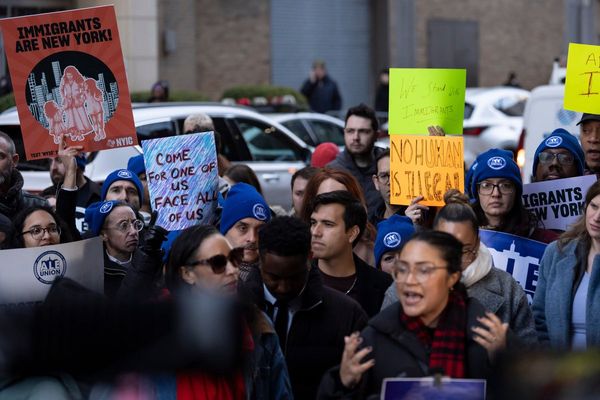
Personal finance expert and bestselling author Suze Orman has said that every soon-to-be retiree must differentiate between fact and fiction in order to be prepared for retirement. Unless you are sitting on a pretty stack of trust funds, chances are you are counting on Social Security benefits to subsidize your plan. However, Orman says delaying the immediate gratification of receiving these benefits could be a better course of action for you.
Find Out: What Is the Highest Social Security Check per Month?
For You: Clever Ways To Save Money That Actually Work in 2025
Many non-retired Americans say they will wait until the age of 70 to receive their maximum Social Security benefit payments, as there is a crisis of confidence in the program. For perspective, the maximum Social Security benefit if you collect retirement early at age 62 is $2,831 per month, whereas if you are full retirement age (between 66 and 67), you’ll get $4,018 per month. If you delay until age 70, it’s about $5,108 per month.
In response to this, Orman said these are five important facts you should know about the Social Security situation.
Social Security Is Not Collecting Enough Money To Reach 2034
Simply put, if things stay as-is, Social Security will not be collecting enough taxes from current workers by 2034 to pay out 100% of the benefits owed to retirees. Orman noted in a LinkedIn post that after 2034, Social Security benefits will not pay out fully anymore, but payments will not stop completely. This is good to remember when retirement planning, as even though it may not be the full amount, it will still help subsidize some of your expenses.
“Now I am not suggesting a payout of just 75% is acceptable, but 75% is a lot more than zero. So let’s keep that in mind,” she wrote.
To counter this decrease in payout, Jay Zigmont, CFP and founder of Childfree Wealth, said that beneficiaries should discount the amount they expect to get from Social Security benefits past 2034 to be safe.
“For younger clients, I encourage them to look at Social Security as a bonus rather than to count on it in retirement,” he said.
Be Aware: Doctors’ Offices and 6 Other Places Where You Should Never Share Your Social Security Number
Social Security Previously Experienced a Similar Shortfall
Orman explained that in 1983, major changes to Social Security were made to address its financial shortfalls, with one such change being the gradual increase of full retirement age from 65 to 67. That two-year difference can affect everything from your short-term savings plan to your long-term financial goals.
“But that change was only made for people younger than 43 at the time,” she wrote, explaining that the new rule didn’t apply to people in their late 40s, 50s or 60s. “There is no reason to expect that the needed changes this go-around would hit near-retirees.”
Why You Should Wait as Long as Possible To Claim Your Social Security Benefits
A Social Security payout will be 76% higher if you wait until age 70 to start collecting, which could be extremely helpful if you indeed have a longer life. Orman said, “If you start at 70, by age 81 you will have collected more from Social Security than if you had started receiving a reduced benefit at age 62.”
Of course, this is only a course of action if your health permits and your health insurance will allow it. Zigmont echoed the sentiment, saying that while mathematically you could make more if you collect early and invest it, very few people pursue investing and instead just spend their Social Security check.
“The longer you wait, the larger your check will be,” he said. “Additionally, Social Security has a cost-of-living adjustment so if you start with a larger monthly benefit, you will get a larger adjustment for life.”
The Highest Household Earner Must Delay Collecting for as Long as Possible
As Orman explained, married couples need to know that when one spouse dies, the surviving spouse is only entitled to one benefit — either their own or the benefit of the deceased spouse, but not both.
As such, she encourages married couples to consider a strategy allowing the highest earner to wait until age 70 before collecting Social Security. Strategizing this way can ensure your retirement savings lasts longer.
Collecting at Age 62 or 70 Is Not an Either/Or Situation
You can claim Social Security benefits anytime between age 62 and age 70, Orman noted, adding that every month you hold off earns you a slightly higher payout of your earned income.
Zigmont added that your retirement age will likely be somewhere in the middle. “Each month you wait to claim increases your monthly amount for the rest of your life. If you can live off of your 401(k) or other retirement income for 6-12 months and wait to claim Social Security, you end up with a longer benefit for life.”
As the Social Security system continues to undergo uncertainties, annual limit changes and shortfalls, it pays to not only understand that system, but to remember these five facts from Orman too.
Yael Bizouati-Kennedy contributed to the reporting for this article.
More From GOBankingRates
- 7 McDonald's Toys Worth Way More Today
- 5 Old Navy Items Retirees Need To Buy Ahead of Fall
- 4 Things You Should Do When Your Salary Hits $100K
- 6 Big Shakeups Coming to Social Security in 2025
This article originally appeared on GOBankingRates.com: Suze Orman’s 5 Social Security Facts That Soon-To-Be Retirees Must Know







